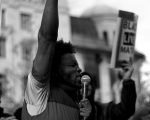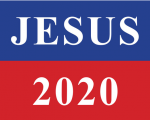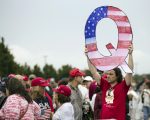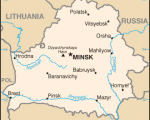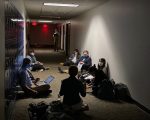Opinion
What Love — & Power Tools — Can Do
Columnist Heather Feeler reflects on leading a small group of girls from her church in helping with a Habitat for Humanity build as part of a stay-in-town mission trip week.
Beyond the Fall of Falwell
It’s tempting to watch Jerry Falwell’s fall and, well, cheer or snicker. After all, he’s done much to hurt the witness of Christianity with his history of hateful rhetoric and partisanship politics — not to mention the sordid details of the scandal that did him in. But this is a tragic moment.
Learning from 2020
Even by measured, more objective standards (think multiple generations, rather than just years), 2020 is turning out to be a year for the record books — a year the world changed. But columnist Christopher Dixon thinks maybe it can be a year that serves as a good reminder.
The Christian Citizen: Gospel, Conscience, & Dissent
Bill J. Leonard reflects on Christian conscience and the role it plays in national citizenship. The best of early Baptist history in America, he argues, reflected the belief that citizenship in this new society should be open to all, whether they were Christian or not.
To Prevent the Next Christian Scandal, Shrink the Integrity Gap
In the wake of Jerry Falwell Jr. taking a leave of absence from Liberty University because of some controversial social media posts, Jeff Mattson & Terra Mattson reflect on how organizations can create environments of truth & grace that hold leaders accountable.
Jesus 2020
During this campaign season, a Baptist church in Alabama started making “Jesus 2020” yard signs. How would such a candidacy go? Editor Brian Kaylor imagines the race.
QAnon: The Alternative Religion that’s Coming to Your Church
It’s a rough time to be a pastor. An election year, national racial unrest, and a global pandemic each challenged the usual methods of ministry. But there’s another challenge: taking on the power of a new religion that’s dividing churches and hurting Christian witness.
Freedom of Religion Doesn’t Mean Freedom from Mask Mandates
No matter what you believe or why you believe it, the First Amendment guarantee of freedom of religion, known as the “Free Exercise Clause,” does not exempt you from a public health requirement to wear a mask.
Reflecting on Belarus
As protesters fill the streets in Belarus to protest the recent presidential election, John Jackson reflects on his many trips to the nation and what he has learned about and from Baptists there.
COVID Tips for Christian Colleges: Wear Masks, Social Distance, Pray — & Watch for Tornadoes
This week we returned to the classroom to teach a weeklong intensive course together at Wheaton College, making it one of the first on-campus college classes to be taught in the U.S. during this new school year. So, of course, there was a tornado.




